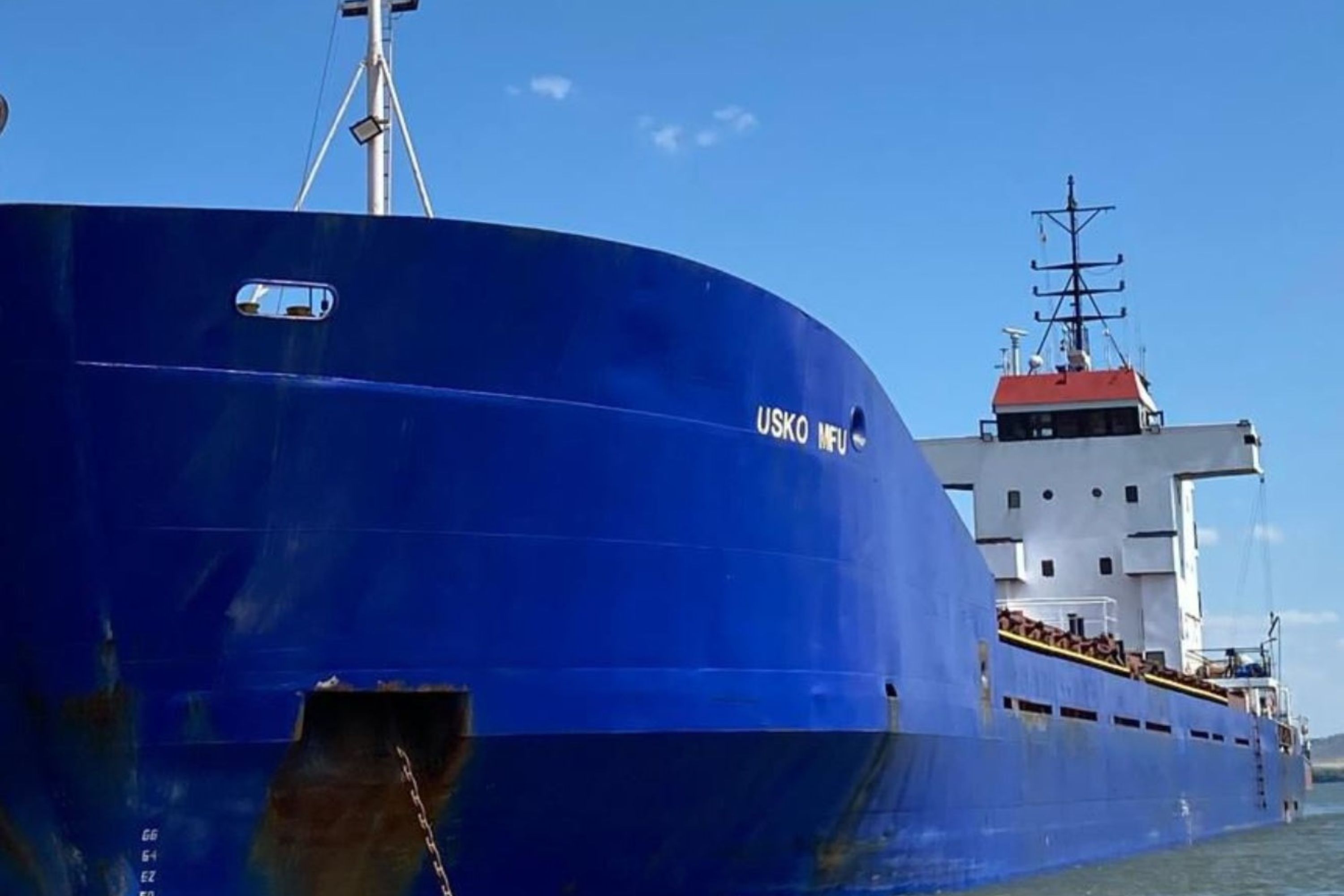Uncommon Knowledge
Newsweek is committed to challenging conventional wisdom and finding connections in the search for common ground.

Ukraine seized a cargo ship that it said was illegally exporting agricultural products via the Russian-annexed region of Crimea.
Ukraine has long accused Russia of illegally exporting its grain from occupied territories since Moscow’s invasion of Ukraine began in February 2022, thought it is uncommon for arrests like this to be made. The Security Service of Ukraine (SBU) revealed that the vessel, sailing under a Central African flag, had been repeatedly docking at the port of Sevastopol in Crimea to load Ukrainian agricultural products, which it described as “looted.” The ship was then transporting the goods to the Middle East for sale on behalf of Russia.
In a separate statement, the Ukrainian Prosecutor General’s Office said the vessel entered Sevastopol in November last year loaded with over 3,000 tons of agricultural products intended for a Turkish company, and then left the port. The ship returned in May, where it unloaded cargo from Turkey, before leaving again, ostensibly for Istanbul. The Ukrainian Prosecutor General’s Office said the vessel in fact arrived in Moldova on July 2 after turning off its tracking system.
The ship was later detained in the Reni port, on the Danube River in Ukraine.
The Ukrainian Prosecutor General’s Office said the captain was from Azerbaijan and the SBU disclosed that he was involved in illegal activities alongside his 12-strong crew. The captain is suspected of disabling the ship’s GPS tracker and falsifying route logs to disguise the illegal exports. He faces up to five years in prison, the SBU said.
Newsweek has contacted the Ukrainian Prosecutor General’s Office for additional information.
Last year, Russia pulled out of a deal brokered by Turkey to allow grain exports through the Black Sea to continue.
The Black Sea Grain Initiative aimed to facilitate exports in the region, a significant deal due to Ukraine’s importance as an exporter of agricultural products such as wheat, barley, and sunflower oil.
Despite the setback, Ukraine has still been able to export significant quantities – with 20 million tons of commodities shipped to 24 countries between August and December last year.
Separately, Russia’s former president and prime minister Dmitry Medvedev said on Wednesday that Russia will seek to occupy “remaining [Ukrainian] lands” after a ceasefire.
According to U.S. think tank the Institute for the Study of War, Medvedev “reaffirmed that Russia would not accept or uphold any negotiated peace settlements with Kyiv short of Ukrainian capitulation, the destruction of the entire Ukrainian state, and the full occupation of Ukraine.”
Recent polling has suggested that Russian President Vladimir Putin may be losing support among the Global South in the wake of his 2022 full-scale invasion of Ukraine.
When asked if they trusted in Putin “to do the right thing regarding world affairs,” 73 percent lacked confidence in the Russian leader, according to Pew.
The poll, conducted between January and May, surveyed 35 countries across the Asia-Pacific, Europe, Latin American, the Middle East, and sub-Saharan Africa.
Confidence in Putin fell in numerous countries including Argentina, Brazil, Columbia, Ghana, Mexico, Turkey, and India.
In India, support fell from 42 percent in 2019 to 39 percent this year, and dropped 2 percent in Brazil over the last year.
Do you have a story we should be covering? Do you have any questions about the war in Ukraine? Contact LiveNews@newsweek.com
Newsweek is committed to challenging conventional wisdom and finding connections in the search for common ground.
Newsweek is committed to challenging conventional wisdom and finding connections in the search for common ground.